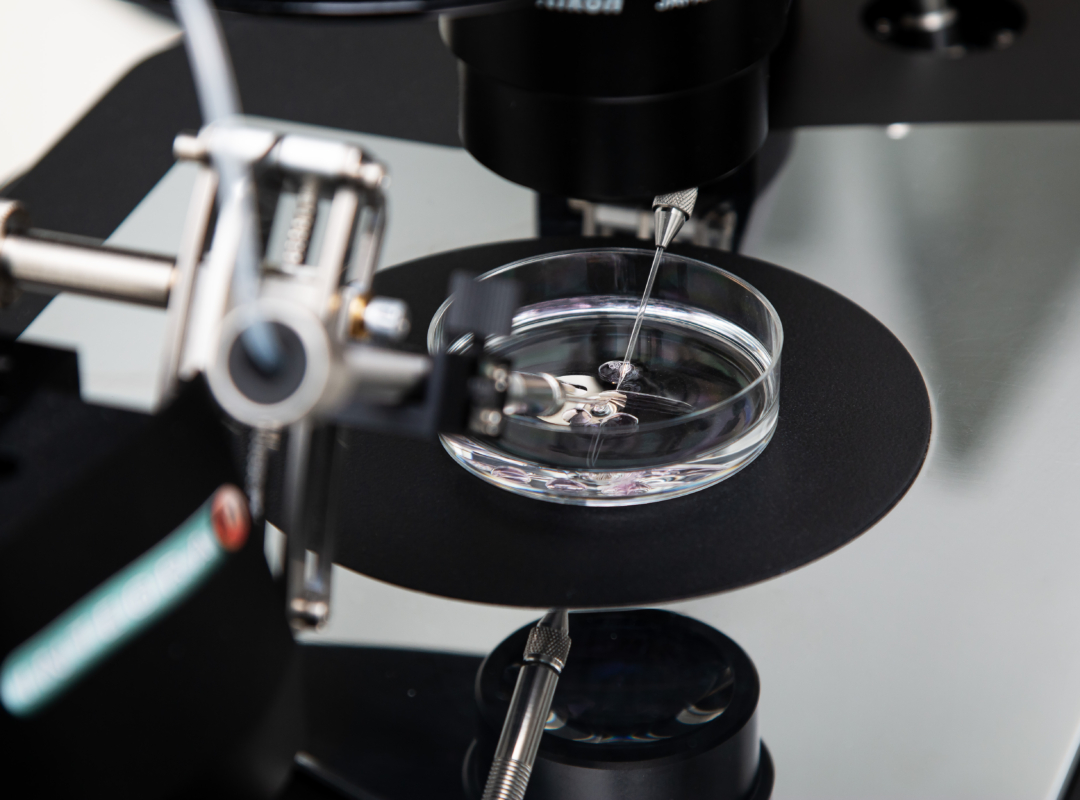Oocyte Cryopreservation
Egg freezing can be a valuable option for women who wish to preserve their fertility for various personal, medical, or ethical reasons.
Who Might Consider Freezing Their Eggs?
Egg freezing can be a valuable option for women who wish to preserve their fertility for various personal, medical, or ethical reasons.
- Women who wish or need to delay childbearing. Women who want to postpone having children due to education, career, or personal reasons may benefit from freezing their eggs at a younger age. As fertility naturally declines with age, freezing eggs during peak fertility years offers the best chance for future pregnancy. Unlike eggs, the uterus does not age significantly, and women can often carry a pregnancy successfully even in their 40s or early 50s. Importantly, the quality of frozen eggs does not decrease over time.
- Women diagnosed with cancer. Cancer treatments such as surgery, chemotherapy, or radiation can damage or destroy eggs, leading to infertility. Freezing eggs before treatment allows the opportunity to preserve fertility. While some women may still have viable eggs post-treatment, fertility preservation is highly individual and depends on age, cancer type, and treatment plan.
- Women with ethical or religious concerns about embryo freezing. Some women or couples prefer not to freeze embryos due to religious or moral beliefs. During standard IVF treatment, there may be surplus embryos that are not used immediately, raising ethical concerns about their storage or disposal. In these cases, fertilizing only the number of eggs needed for the IVF cycle and freezing the remaining unfertilized eggs may be a more acceptable solution.
- Women with a family history of early menopause. Some forms of early menopause can be hereditary. If there is a family history, freezing eggs early can preserve fertility before egg reserves are depleted.
How Are Eggs Frozen?
Unlike sperm or embryos, which are relatively easy to freeze, the egg is the largest cell in the human body and contains a high amount of water. This makes it more vulnerable to damage from ice crystal formation during freezing. To prevent this, the water in the egg is replaced with a cryoprotectant (an antifreeze-like substance), which protects the cell during freezing.
Because the shell of the egg becomes harder after freezing, fertilization later requires intracytoplasmic sperm injection (ICSI), where a single sperm is injected directly into the egg.
There are two main methods of egg freezing:
- Slow freezing
- Vitrification (rapid freezing) – now the preferred and more effective method.
What Is the Egg Freezing Process Like for the Patient?
Egg freezing involves a process similar to standard IVF. The only difference is that after the egg retrieval, the eggs are frozen instead of being fertilized right away.
The overall process takes around 4 to 6 weeks and includes:
- 2–4 weeks of hormone injections and possibly birth control pills to temporarily suppress natural hormones.
- 10–14 days of hormone stimulation to encourage multiple eggs to mature.
When the eggs are ready, they are retrieved using a needle guided by ultrasound through the vaginal wall. This is done under general anesthesia.
The eggs are then immediately frozen. When the woman is ready to attempt pregnancy — potentially years later — the eggs are thawed, fertilized with sperm, and the resulting embryos are transferred into the uterus.
How Long Can Frozen Eggs Be Stored?
Scientific studies confirm that long-term storage does not reduce the quality of frozen eggs.
In Estonia, only licensed fertility clinics may freeze and store eggs. The law does not currently limit the length of time eggs may be kept frozen.
How Many Eggs Should Be Frozen to Increase the Chances of Future Pregnancy?
For women under 38, typical expectations are:
- 75% of frozen eggs survive the thawing process
- 75% of thawed eggs fertilize successfully
This means that from 10 frozen eggs, around 7 will survive thawing, 5–6 may fertilize, and several embryos may develop. Usually, 1–2 embryos are transferred per cycle.
To maximize the chance of pregnancy, it’s recommended to freeze around 10 eggs per intended pregnancy attempt. Most women under 38 are able to retrieve 10–15 eggs in one cycle.
How Successful Is Egg Freezing?
According to statistics, around 65% of women who use their frozen eggs later go on to have a baby. (Source: fertilitypreservation.org’s calculator for pregnancy likelihood after egg freezing and thawing.)
Please note: Elite Clinic cannot be held responsible in cases where thawed eggs do not survive, fertilization is unsuccessful, embryo development is abnormal, or pregnancy does not occur.
What If a Woman Is Over 38 When Freezing Her Eggs?
The chances of pregnancy depend on the age at the time of egg freezing, not the age when the eggs are used.
Women older than 38 may have lower success rates, and it is not yet fully known whether eggs from women over 40 respond to freezing and thawing in the same way as younger eggs.
Is Egg Freezing Safe?
Yes. Over 10,000 babies worldwide have been born from frozen eggs. The largest published study, involving 900 children born from frozen eggs, found no increase in birth defects compared to the general population. There were also no increased risks of chromosomal abnormalities compared to embryos from fresh eggs.
A 2014 study also confirmed that pregnancy-related complications do not increase due to egg freezing.
Globally, over 300,000 children have been born from frozen embryos (mostly using slow freezing methods), without an increase in birth defects. However, ongoing studies continue to monitor long-term outcomes to ensure safety.
Price
| Service | Price |
|---|---|
Oocyte Cryopreservation (Tervisekassa kindlustuse olemasolul) | 1570 € |
Oocyte Cryopreservation (Tervisekassa kindlustuseta patsientidele) | 1930 € |
| Booking | |
|---|---|
Schedule your appointment online |
Service providers:
Further reading



